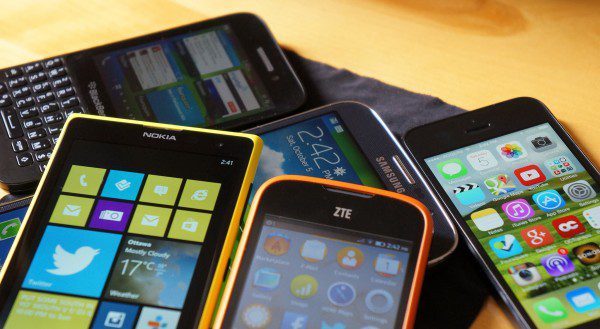Scripture admonishes us to “think on these things,” to “meditate day and night” on truth, and to “study to show ourselves approved unto God.” And yet, the very technology that made it easier than ever to do so, can also make it harder than ever to do so—if we don’t control technology overload.

Our easy access to information and connection creates an “always on” lifestyle that leaves little time for introspection, meditation, and the sort of intentional thinking required for intentional living with abundant faith.
And, let’s face it, we usually don’t control technology. We let it dictate to us how we live out our faith.
Oh, we don’t bow to it. We don’t set out to structure our day around it. Yet that’s often what happens.
- We reach for it as we roll out of bed and light up the screen as our first contact with the world each day.
- We have a moment to think or pray and we whip out our phones instead to surf social media.
- We find ourselves waiting in line with our children and, instead of engaging them in conversation, we scroll to discover the latest news.
- Worse yet, we find the sermon dull so we open email to make sure we’re not missing something more important.
Sometimes I think that if the rich, young ruler had come to Jesus today, Jesus would have told him to sell all his technology and give his smartphone to the poor.
I suspect most of us would walk away saddened, googling “alternate ways to heaven.”
Let’s face it: technology has made it easier to seem less dependent on God than ever before. When we didn’t have access to instant communication, we had no choice but to wait and to trust.
Now a tap of the finger can give us the sensation of doing something substantive. It allows us to feel as if we are in control. Even when, by becoming more enslaved to it, we’re losing more control of our lives every day.
And that’s the truth of it, really.
Our failure to control technology is driven by fear to the detriment of our faith and family.
We fear missing out on something, of being out of the loop. Consequently, we ignore the things that matter most because that shiny screen promises something that feels better in the moment.
One Tactic to Control Technology
I don’t claim to have mastered the use of technology, but I have learned a few useful techniques to help keep first things first. One of them is to practice what I call a digital sabbath. [See my post “How to Take a Digital Sabbath”]
But here’s my challenge to you: designate On and Off times each day for your technology access.
As each new day begins, don’t let email, social, or news outlets determine your first thought of the day. All too often, we wake up and reach for our phones like insects drawn inexorably to the light. Then we wonder why we feel burned out, negative, and reactionary.
You can choose your first thoughts of the day. Make them positive. [See my post “Do You Start the Day with God before You?”]
For me, as an entrepreneur, I’ve chosen not to check email or team communication channels until 9 AM each day. The morning is protected for sharpening the saw, thinking, and writing.
It takes faith not to check my email and trust that, if I put first things first, God will supply my needs.
Then choose a time each evening when you’ll put the phone away. I choose to shut it down as I head to dinner with the family at 6 PM. Even on a night where I need to work more (the life of an entrepreneur) I stay off email and focus on a specific task.
I find that when I set on/off times to access technology, I’m able to be more present with people, think deeper about life, and be more intentional about living out my faith and calling.
Some trust in chariots and some in smartphones and instant email access, but we trust in the name of the Lord our God. That doesn’t mean we don’t use those tools to fulfill our calling, but we don’t make it our life calling to use those tools.
If we don’t set boundaries on our access to technology, our faith will suffer.
Technology is a gift from God, given to help us fulfill His mission. Let’s treat it as such.
Photo credit: Jon Fingas, Creative Commons 2.0










